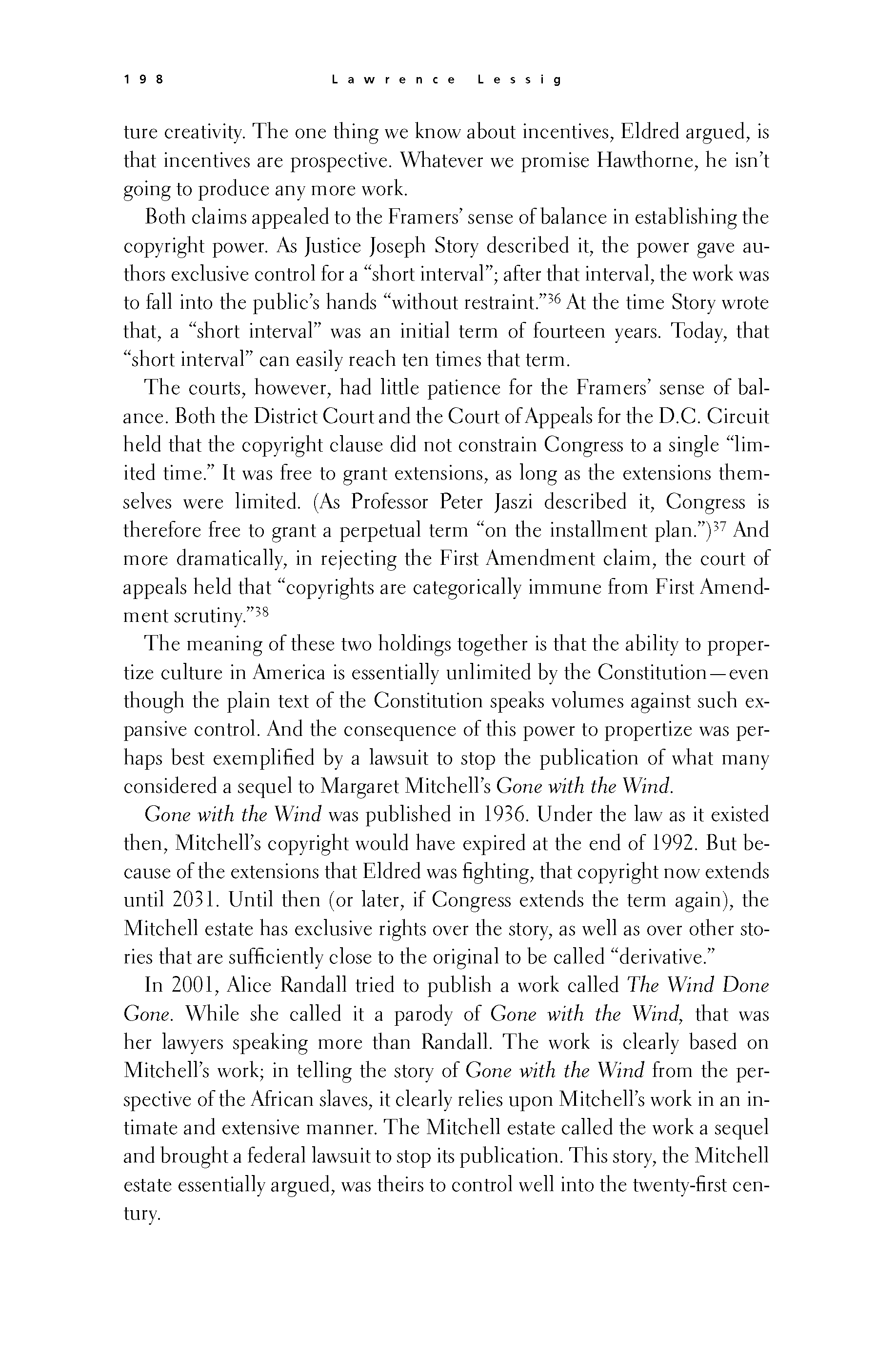 p197 _
-chap- _
toc-1 _
p198w _
toc-2 _
+chap+ _
p199
p197 _
-chap- _
toc-1 _
p198w _
toc-2 _
+chap+ _
p199
ture creativity. The one thing we know about incentives, Eldred argued, is
that incentives are prospective. Whatever we promise Hawthorne, he isn't
going to produce any more work.
Both claims appealed to the Framers' sense of balance in establishing the
copyright power. As Justice Joseph Story described it, the power gave au-
thors exclusive control for a "short interval"; after that interval, the work was
to fall into the public's hands "without restraint."[11-36] At the time Story wrote
that, a "short interval" was an initial term of fourteen years. Today, that
"short interval" can easily reach ten times that term.
The courts, however, had little patience for the Framers' sense of bal-
ance. Both the District Court and the Court of Appeals for the D.C. Circuit
held that the copyright clause did not constrain Congress to a single "lim-
ited time." It was free to grant extensions, as long as the extensions them-
selves were limited. (As Professor Peter Jaszi described it, Congress is
therefore free to grant a perpetual term "on the installment plan.")[11-37] And
more dramatically, in rejecting the First Amendment claim, the court of
appeals held that "copyrights are categorically immune from First Amend-
ment scrutiny."[11-38]
The meaning of these two holdings together is that the ability to proper-
tize culture in America is essentially unlimited by the Constitution -- even
though the plain text of the Constitution speaks volumes against such ex-
pansive control. And the consequence of this power to propertize was per-
haps best exemplified by a lawsuit to stop the publication of what many
considered a sequel to Margaret Mitchell's _Gone_with_the_Wind._
_Gone_with_the_Wind_ was published in 1936. Under the law as it existed
then, Mitchell's copyright would have expired at the end of 1992. But be-
cause of the extensions that Eldred was fighting, that copyright now extends
until 2031. Until then (or later, if Congress extends the term again), the
Mitchell estate has exclusive rights over the story, as well as over other sto-
ries that are sufficiently close to the original to be called "derivative."
In 2001, Alice Randall tried to publish a work called _The_Wind_Done_
_Gone._ While she called it a parody of _Gone_with_the_Wind,_ that was
her lawyers speaking more than Randall. The work is clearly based on
Mitchell's work; in telling the story of _Gone_with_the_Wind_ from the per-
spective of the African slaves, it clearly relies upon Mitchell's work in an in-
timate and extensive manner. The Mitchell estate called the work a sequel
and brought a federal lawsuit to stop its publication. This story, the Mitchell
estate essentially argued, was theirs to control well into the twenty-first cen-
tury.
[[198]]
p197 _
-chap- _
toc-1 _
p198w _
toc-2 _
+chap+ _
p199